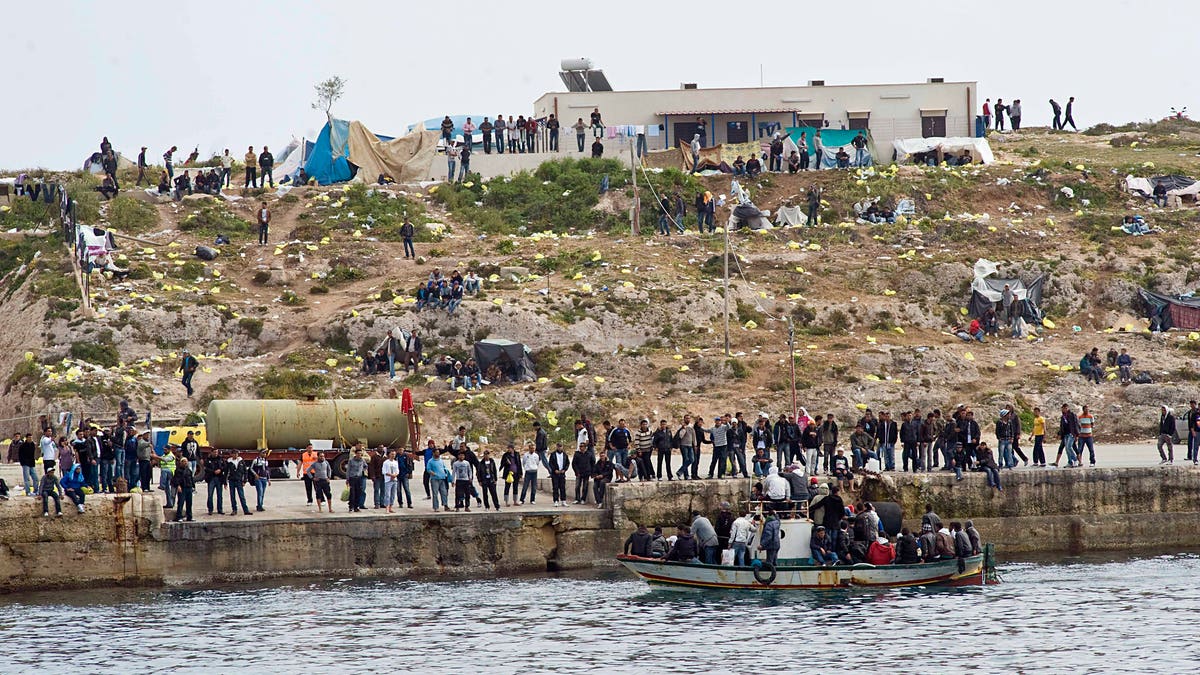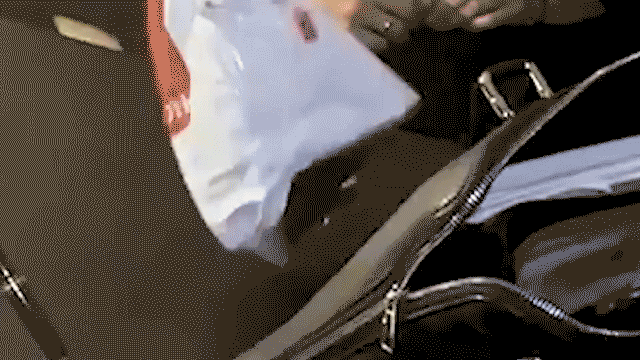
Migrants on a boat approach the Lampedusa harbor, Italy, Monday, March 28, 2011. Fishermen have used empty migrants' boats to block the entrance to Lampedusa harbor, a mostly symbolic act which still raised cheers from townsfolk gathered on the quays. News reports Monday said the boats, which had been seized by Italian authorities, were used to block the tiny island's port. Officials reported 460 migrants arrived from North Africa overnight, joining 3,000 more who have arrived in the last three days and escalating tensions on the island, closer to Africa than to mainland Italy. (AP2011)
Italy on Thursday shipped more than 2,000 migrants fleeing unrest in Northern Africa to detention camps on its mainland from a tiny island off Sicily.
Thousands of poor migrants, mostly young men fleeing political violence in Tunisia, have been landing in Lampedusa, with a population of just 5,000, in rickety boats since the start of the year.
The situation reached a crisis point this week when 6,000 migrants, with little food and no money, outnumbered the locals. The island’s holding center can only handle 800 people, and many were forced to sleep out in the open.
Residents cheered wildly when Berlusconi announced Wednesday that immigrants who landed on the island would all be removed within two and a half days. The island survives largely on summer tourism. Locals, worried that visitors would cancel their summer vacations, were furious that Lampedusa had been taken over.
Six ships are currently working on transporting the immigrants to holding centers on both Sicily and the mainland.
While Prime Minister Silvio Berlusconi appears to have solved one problem -- promising the Lampedusa residents to clear it of immigrants -- the question of where they will go remains a critical one for Italy and Europe.
Regional governments on the mainland are already balking at having immigrant camps set up. Anti-immigrant political forces, such as the Northern League, are growing even more strident in their calls to halt the influx.
While Italy has called on Europe to lend a hand in absorbing the recent wave, no one is putting out the welcome mat. While many of the Tunisians would like to relocate to France, most of those who have made it to the border have been turned back and told to stay in Italy.
“It’s stunning that there’s no solidarity from any of the other European countries,” Italian Foreign Minister Franco Frattini said on an Italian TV news show.
Most of the immigrants would be classified as economic migrants. While they don’t have the same rights as those considered refugees, fleeing wars or persecution, for example, they just can’t be shipped back to their home countries.
While some Italian government officials have talked about repatriation, they can’t do that unless there is a re-admission pact with the country of origin. Italy and Tunisia currently have no such agreement.








































